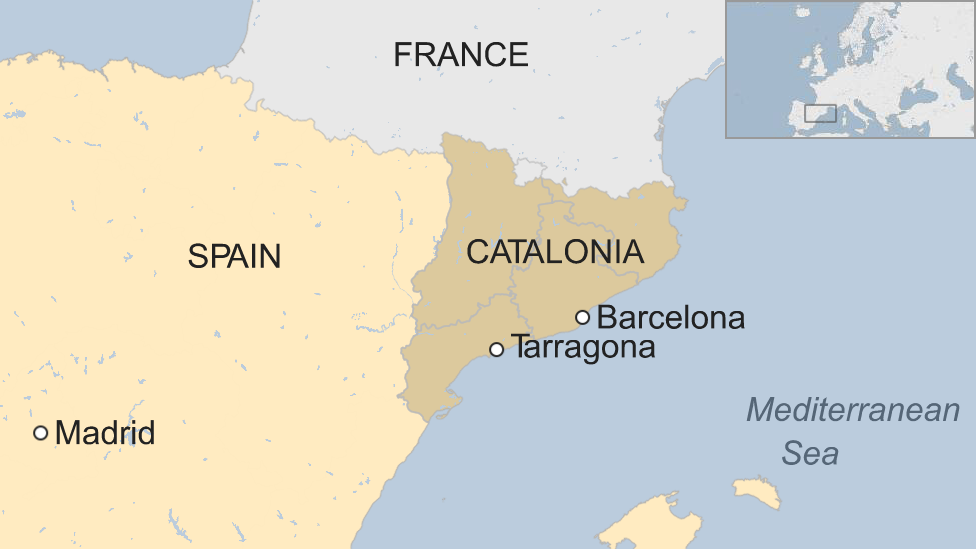Catalan bullfights: Spanish top court overturns ban
- Published
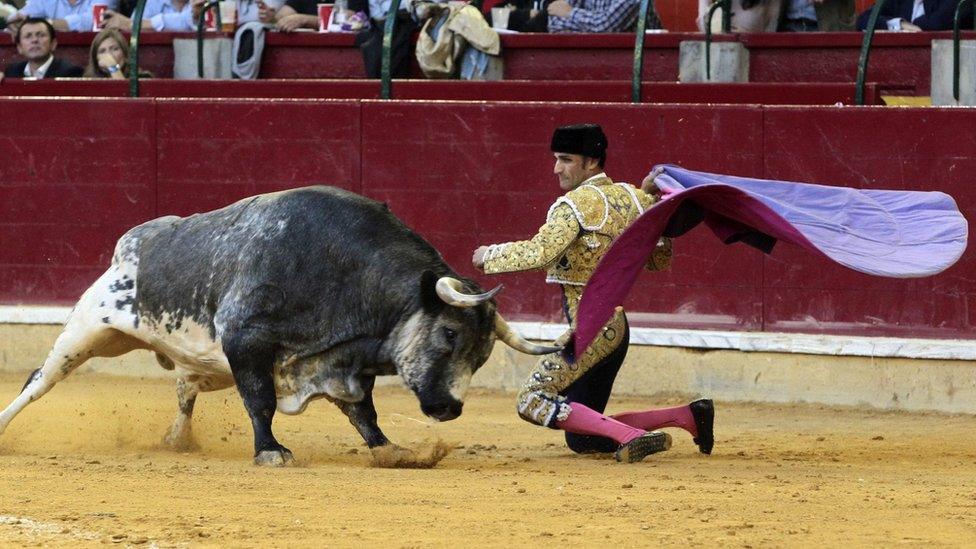
About 2,000 bullfights are held across Spain every year
Spain's constitutional court has overturned a ban on bullfighting in Catalonia, declaring it unconstitutional.
The court said bullfighting was part of Spanish heritage and therefore any decision on banning it could only be taken by central government.
Bullfighting was banned in Catalonia in 2010 on the grounds that it was incompatible with Catalan tradition.
Analysts say similar laws in other regions could now also be reversed.
Catalonia became the second Spanish region after the Canary Islands to ban the tradition. Bans are also being debated in the Balearic Islands and several Spanish municipalities.
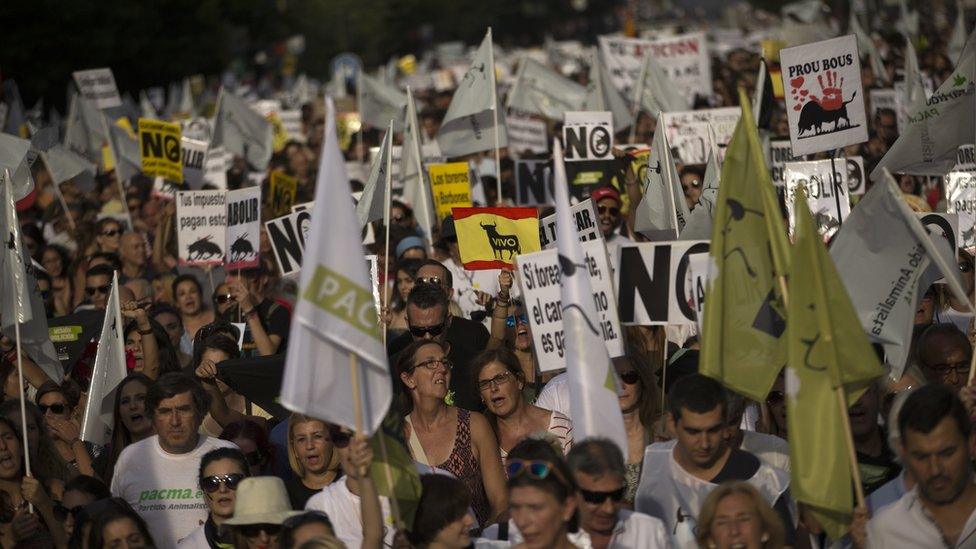
Thousands attended a protest against bullfighting in Madrid in September

Analysis by James Badcock, BBC News, Madrid
The Spanish constitutional court's ruling is like a red rag to a bull for those who already support independence for Catalonia because many will disagree with a decision that has taken years to arrive.
Unlike other attempts by Catalonia to forge its own laws, the ban on bullfighting was not immediately suspended by Spain's top court, leading the quintessentially Spanish practice to become a thing of the past in the region. Bullfighting has declined in popularity across Spain as younger audiences increasingly stay away.
Local authorities have already said they will do everything they can to prevent bullfights making a return.
So the scene is set for a showdown. Catalonia's freedom to rule its affairs is on one side of the ring and the Spanish state on the other.

The ban was taken to court by the Catalan branch of the governing centre-right Popular Party (PP).
Branch president Alicia Sanchez-Camacho "welcomed" the court's decision, tweeting that the PP would "continue to defend" freedom and bullfighting.
But Gabriel Rufian, a Catalan separatist politician and activist, tweeted: "In the Spanish state, it's unconstitutional to ban the public torture and murder of an animal. Enough said."
Spanish animal rights group Pacma criticised the decision as politically motivated.
"Once more they have been found to use animals in a political war," said spokeswoman Ana Bayle, adding: "They don't know anything about animals, nor do they care."
In Catalonia the ban - which was announced in 2010 and came into force in January 2012 - was seen by many as an attempt by Catalan nationalists to distinguish the region from the rest of Spain.
'Ancient art form'
About 2,000 bullfights are held every year across Spain but recent opinion polls suggest public support has waned.
Opponents say the pageants are barbaric while supporters, who including Prime Minister Mariano Rajoy, say the tradition is an ancient art form rooted in Spanish history.
Last month, thousands of people took to the streets of the capital Madrid to demand an end to bullfighting.
Protesters held up banners saying "Bullfighting, the school of cruelty" and "Bullfighting, a national shame".
Supporters have also organised rallies in favour of the tradition.
In July, a matador died after being gored by a bull in the eastern town of Teruel - the first Spanish bullfighter to die in the ring for more than 30 years.
- Published9 July 2016
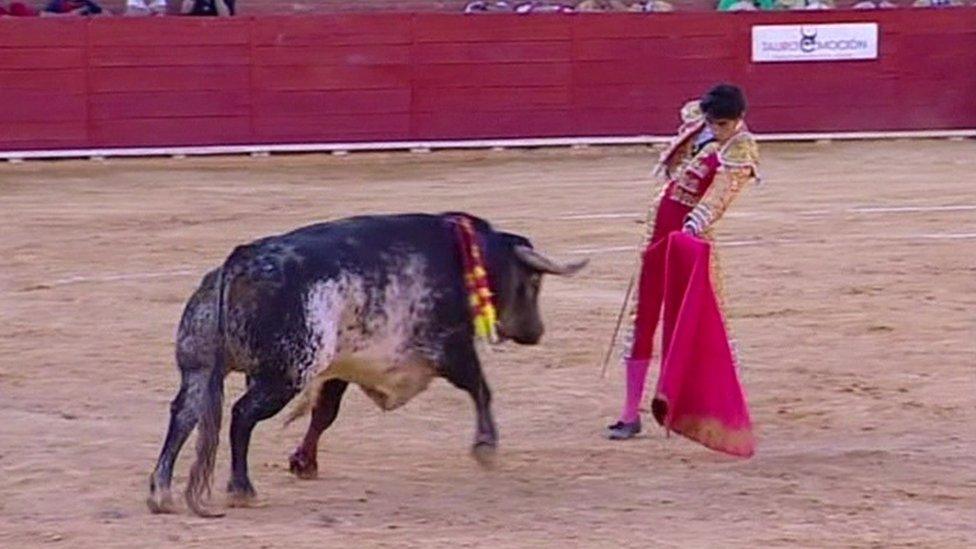
- Published22 May 2014
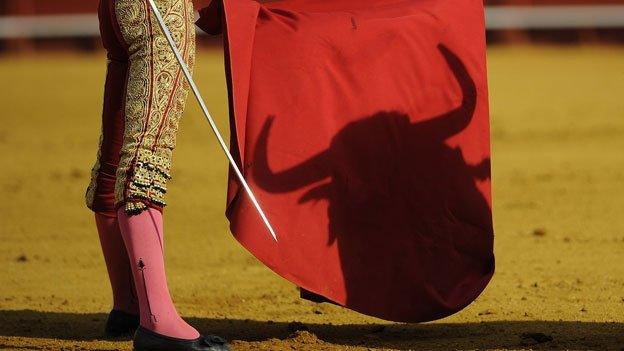
- Published21 August 2023
